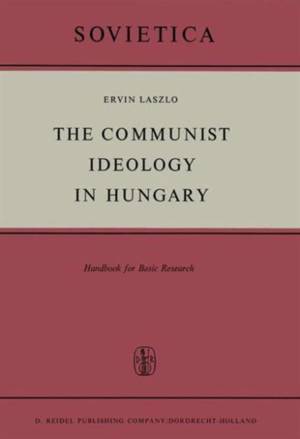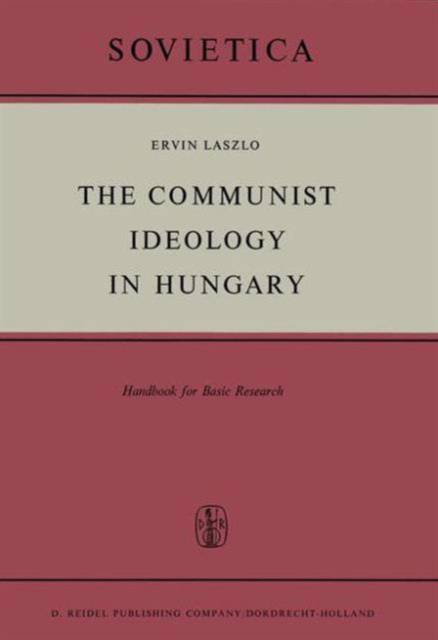
Bedankt voor het vertrouwen het afgelopen jaar! Om jou te bedanken bieden we GRATIS verzending (in België) aan op alles gedurende de hele maand januari.
- Afhalen na 1 uur in een winkel met voorraad
- In januari gratis thuislevering in België
- Ruim aanbod met 7 miljoen producten
Bedankt voor het vertrouwen het afgelopen jaar! Om jou te bedanken bieden we GRATIS verzending (in België) aan op alles gedurende de hele maand januari.
- Afhalen na 1 uur in een winkel met voorraad
- In januari gratis thuislevering in België
- Ruim aanbod met 7 miljoen producten
Zoeken
Omschrijving
The immediate purpose of this handbook is to aid further research by stating, in a form providing handy reference, the facts concerning the Communist ideology in Hungary Following a narrative of the vicissitudes of that ideology prior to its power-phase - intended as a general introduction contributing to the proper assessment of the 1945-1965 period, which is the main concern of this book - the essential and relevant facts concerning the events, issues, organizations and opinions which have shaped post-war Hungarian Marxism- Leninism are set out without indulging in lengthy commentaries and personal value-judgements. (Since even the 1956 revolution is treated thus - perhaps the most important, and certainly the most controversial single event of the above period - I should add that the reader interested in finding a detailed analysis and evaluation of the ideological relevance of that event may refer to my Individualism Collectivism and Political Power, The Hague, 1963, pp. 111-140. ) Despite the specificity of much of the data, sufficient translations of Hungarian titles, names and terms have been provided to render the present book useful for the investigator regardless of whether or not he reads Hungarian. But the fundamental purpose of this volume is to make a modest contribution to East-West understanding. It has arisen from the belief that the lessening of world-tensions is best served by understanding, and understanding is best served by objective information.
Specificaties

Alleen bij Standaard Boekhandel
+ 190 punten op je klantenkaart van Standaard Boekhandel
Beoordelingen
We publiceren alleen reviews die voldoen aan de voorwaarden voor reviews. Bekijk onze voorwaarden voor reviews.









